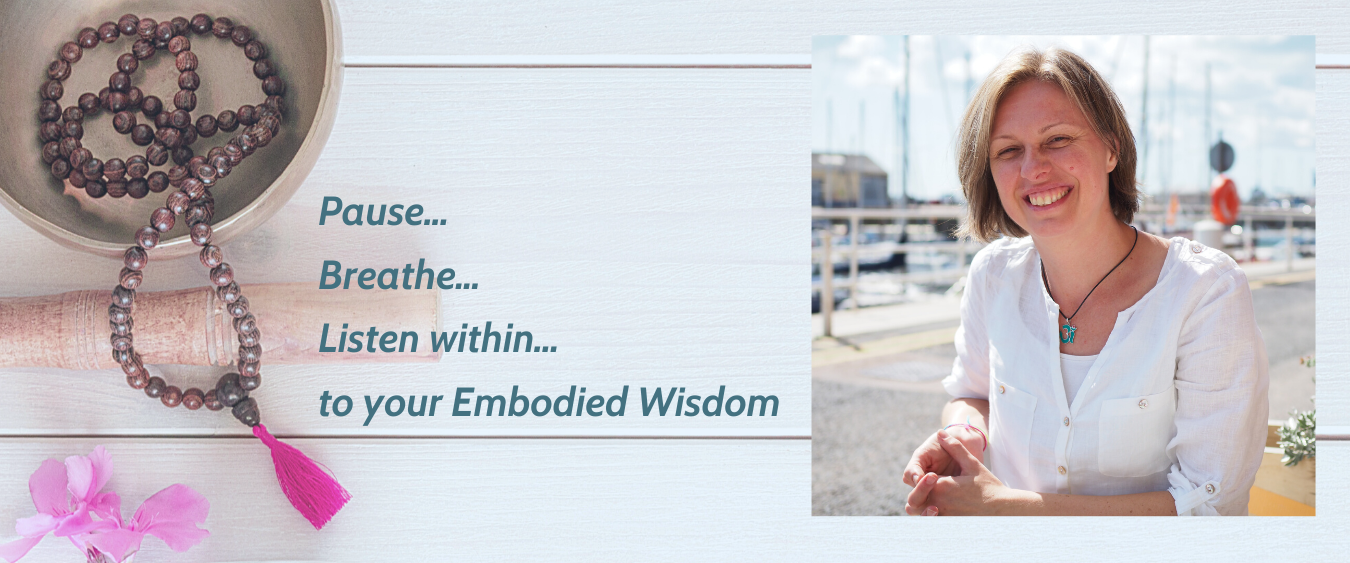♥
Going beyond old ways of looking at body
“Your body is not a machine,
rather a wonderfully intricate interaction with everything around you,
Which is why it ‘knows’ so much just in being.”
Gendlin
.
Over the past two decades I’ve done a lot of courses and read a lot of books. If you know me even a little then you know that I’ve been on a search for the truth. I’ve been searching for a way to practice that would allow me to be at ease with myself. I remember having therapy many years ago and my therapist saying that I was ‘tormented’, which reflected quite well my inner state at the time.
This is why I studied so many different approaches: Psychology and Counselling, Social Sciences, NLP, Life Coaching, Wellness Coaching, Energy Healing, Reiki, Mindfulness, Yoga, Embodiment, Somatic movement and now Focusing (Embodied Listening).
And in my searching I learned so much. I discovered so much about who I am, my conditioning, my inner and outer processes and the humbling acknowledgement of our shared human condition.
And I’ve worked with hundreds of clients in various settings – people who like me were on a search and I learned so much from them, for which I am so grateful.
.
3 ways of working with body
And what I realised is that there different ways of working with our body and our whole experience – leading to different levels of connection.
.
1. Traditional (old school) approach – where we treat body as a mechanical object.
We look at body’s alignment and the difference between right and left sides as well as top and bottom, analyse the posture and decide on how to correct it.
There is a real separation between body and mind – physical and mental/emotional issues and treatments.
Some of the best known corrective approaches to body are based on this principle: allopathic medicine, osteopathy, physio, fitness and exercise, fitness-focused yoga.
Many of us like this approach and find it useful – we want our body to be fixed and sorted, especially when in a lot of pain or discomfort. We want to feel stronger, more in control and fitter.
.
2. Newer somatic approach – where we treat body as a space containing passing sensations.
We recognise the power of impact of the Vagus Nerve and a healing power of deep abdominal breath. We acknowledge that body can self-regulate and heal with the right conditions.
We understand that body affects mind and mind affects body and we acknowledge power of emotions.
Some of the best known practices are:
Mindfulness practices especially body scan, somatic movement and Mindful Yoga, Yin Yoga and all breathing practices. Energetic healing touch practices such as Thai Yoga Massage.
.
3. This last approach is very new – it treats body as flowing and living sensation wanting life-forward movement.
We acknowledge and accept that body is one whole living system that communicates through felt-senses – meaningful body sensations.
The sense of wholeness and integration comes by itself from deep listening and acknowledging of those felt-senses. There is no separation between body and mind – just like the old wisdom of yoga teaches us.
Best known practices are:
Focusing and Wholebody Focusing, Somatic Experiencing (for trauma work) and Embodied Mindful breath-led Yoga.
.
This last approach for me comes under Embodied Wisdom practices – taking a pause to notice, acknowledge and be with our body, our whole experience – with kindness and curiosity. Allowing yourself to rest within. Understanding that integration comes from creating harmony and inclusion within (no ‘show it who’s the boss’ BS).
This is what I teach my clients – especially in private sessions as they allow us to explore the individual needs.
I’ve spend the last year learning Focusing practice for myself and to hold in Presence my body with its felt-senses. And I have to say this way of being completely changed how I am with myself, other people and the world. This practice allowed me to go beyond mindfulness and awareness into a real inner dialog and a sense of deep integration and wholeness.
All of the above approaches to body are valuable and useful but you will get different results from each one.
.
Why does it matter?
Because understanding the distinctions is helpful in helping you achieve your goals.
Because if you want to create a deeper sense of wholeness, integration, self-trust and ease then learning to be with your felt-senses is the way forward.
This September I have last 3 spaces available in my private practice schedule for my signature programme Embodied Wisdom Path Coaching Programme, which is designed for you to learn those life-changing practices.
I offer 30 mins free consultation call and you can book it directly in my online calendar – let’s talk about how we can work together.
♥










